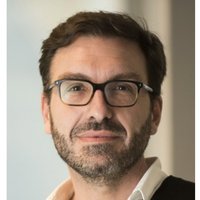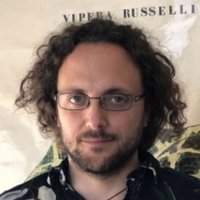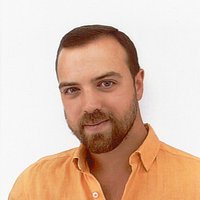Human Population and Evolutionary Genetics
- Duration: 8 weeks
- Effort: 25 hours
- Pace: ~3 hours/week
- Languages: English and french
What you will learn
At the end of this course, you will be able to:
- Define what is population genetics
- Explain the factors responsible for genetic diversity
- Describe the genetic history of our species on the 5 continents
- Identify how humans have adapted to the great diversity of environments
- Discuss the importance of the Neanderthal genome in our genetic heritage
Description
More than two decades after the sequencing of the human genome, a deluge of population genomic data has been generated, depicting human genetic diversity at an unprecedented level of resolution. This massive amount of data has improved our understanding of the demography of our species, in particular its dispersion around the globe and the interbreeding of populations.
Studies based on ancient DNA have shown that Neanderthals and Denisovans, now extinct hominins, contributed to the genome of modern non-African populations. Population genetics has also led to a better understanding of how natural selection has contributed to the diversity of the human genome on a population scale. The detection of the molecular signatures of natural selection in the human genome has made it possible to identify the genes responsible for the morphological and physiological diversity observed between current human populations.
The aim of this MOOC is to provide the fundamental bases of population genetics applied to our species, and to illustrate this with numerous examples.
Format
This MOOC is organized in 4 chapters of 5 to 8 sessions each. Each session includes a 6 to 10-minute video. Each session is followed by two MCQs, allowing learners to test their understanding. At the end of each chapter, a set of MCQs is offered again. The videos are in English, with subtitles in English and French. The MCQs are in English and French.
Want to stay informed? Follow us on LinkedIn, X- Twitter and YouTube to discover all our events.
Prerequisites
Assessment and certification
To follow this course, you can choose between two options:
- The Discovery Course gives access to videos, quizzes and discussions in the forum. No badge is issued for this course. Registration is free.
- The Qualifying Course leads to a certificate. In addition to the activities of the Discovery Course, you will have to take a one-hour supervised distance learning exam, consisting of 30 multiple-choice questions (MCQs) and obtaining 18 correct answers. The registration fee for the Qualifying Course is 150€.
Successful completion of the Qualifying Course gives you the opportunity to apply for the Institut Pasteur Online Diploma of Infectious Diseases (DNM2IP), which consists of 5 certificates to Institut Pasteur MOOCs on infectious diseases. To learn more, visit the Institut Pasteur's web page dedicated to this diploma.
Course plan
- Diversity of the human genome (Lluis Quintana-Murci)
- Public databases of population genetic variation (Lluis Quintana-Murci)
- Causes of genetic diversity: mutation and recombination (Laure Ségurel)
- Factors driving genetic diversity: genetic drift (Paul Verdu)
- Factors driving genetic diversity: natural selection (Etienne Patin)
- Methods of demographic inference (Etienne Patin)
- Population splits and admixture among humans (Paul Verdu)
- The genetic history of the African continent (Etienne Patin)
- The genetic history of the European continent (Samantha Brunel)
- The genetic history of Asia, Australia and Oceania (François -Xavier Ricault)
- The genetic history of the Americas (Javier Mendoza Revilla)
- The use of pathogens as markers of human migrations (Mary O’Neill)
- Inferring cultural practices through genetics (Raphaelle Chaix)
- Methods to detect natural selection (Etienne Patin)
- The effects of purifying selection in the genome and populations (Marie Lopez)
- Adaptation to nutritional resources (Laure Ségurel)
- Adaptation to climate and extreme conditions (Javier Mendoza Revilla)
- Adaptation to pathogens and infectious diseases (Lluis Quintana-Murci)
- Alternative models of adaptation (Etienne Patin)
- Methods in ancient genomics (Ludovic Orlando)
- The archaic hominins and admixture with modern humans (Ludovic Orlando)
- Recent history through the lens of ancient DNA (Céline Bon)
- The phenotypic legacy of archaic admixture (Maxime Rotival)
- The adaptive nature of archaic introgression (Lluis Quintana-Murci)
- Public engagement and return to populations (Tamara Giles-Vernick)
Course team
Lluis Quintana Murci
Categories
Etienne Patin
Categories
Oguzhan PARASAYAN
Categories
Organizations
License
License for the course content

Attribution-NonCommercial-NoDerivatives
You are free to:
- Share — copy and redistribute the material in any medium or format
Under the following terms:
- Attribution — You must give appropriate credit, provide a link to the license, and indicate if changes were made. You may do so in any reasonable manner, but not in any way that suggests the licensor endorses you or your use.
- NonCommercial — You may not use the material for commercial purposes.
- NoDerivatives — If you remix, transform, or build upon the material, you may not distribute the modified material.
License for the content created by course participants

Attribution-NonCommercial-NoDerivatives
You are free to:
- Share — copy and redistribute the material in any medium or format
Under the following terms:
- Attribution — You must give appropriate credit, provide a link to the license, and indicate if changes were made. You may do so in any reasonable manner, but not in any way that suggests the licensor endorses you or your use.
- NonCommercial — You may not use the material for commercial purposes.
- NoDerivatives — If you remix, transform, or build upon the material, you may not distribute the modified material.






